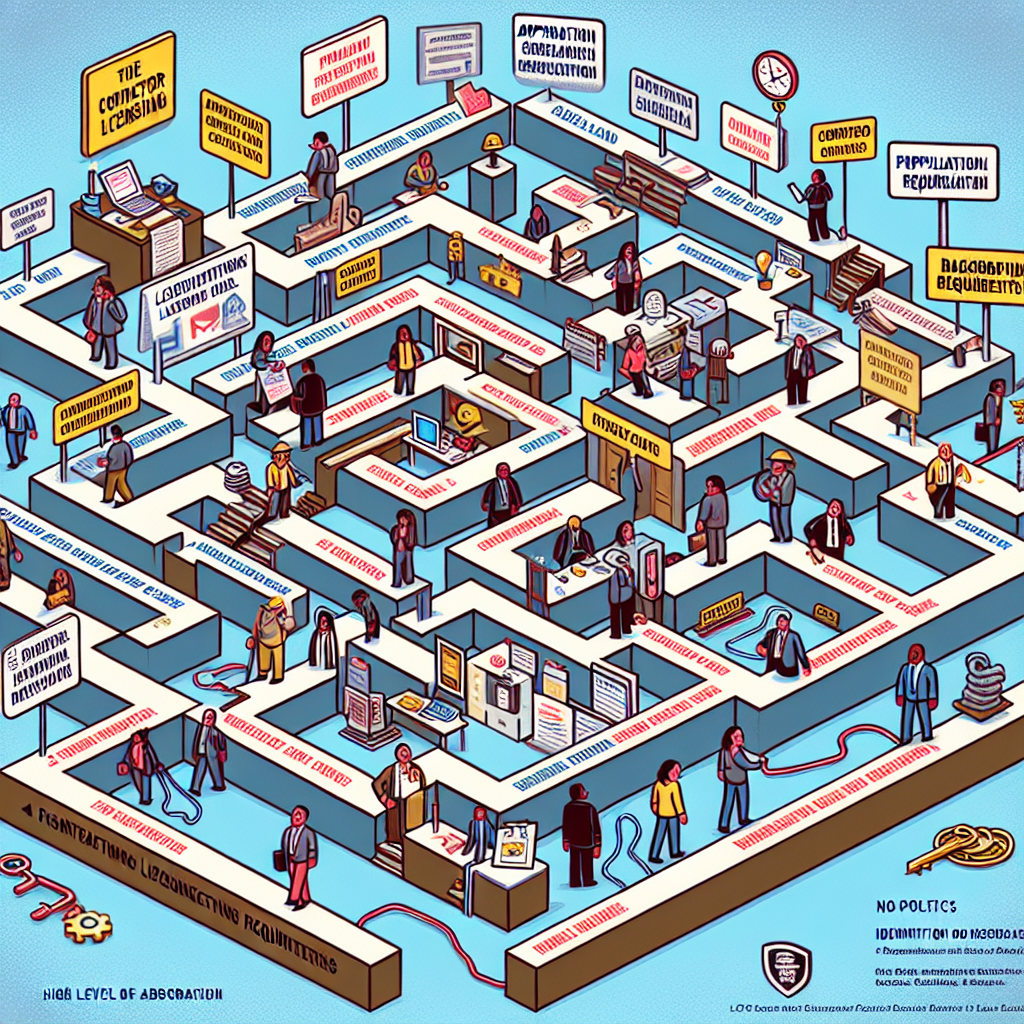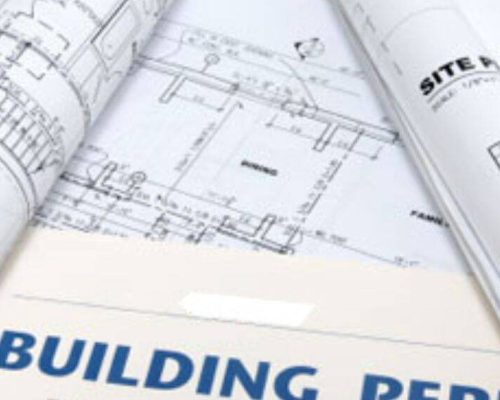Understanding the Different Types of Contractor Licenses in Delaware
Delaware is a state that takes great pride in its construction industry. With a booming economy and a growing population, there is a constant demand for skilled contractors to build and renovate homes, businesses, and infrastructure. However, before anyone can start working on a construction project in Delaware, they must first obtain the necessary contractor license.
The state of Delaware has specific requirements for contractors, depending on the type of work they will be performing. It is essential to understand the different types of contractor licenses in Delaware to ensure that you are operating within the law and providing quality services to your clients.
The first type of contractor license in Delaware is the Home Improvement Contractor License. This license is required for any contractor who will be performing home improvement work, such as remodeling, repairs, or additions, on residential properties. To obtain this license, contractors must submit an application, provide proof of insurance, and pass a background check. They must also complete a 10-hour safety course and pass an exam on Delaware’s laws and regulations related to home improvement work.
Next is the General Contractor License, which is required for any contractor who will be working on commercial or industrial projects. This license has more stringent requirements compared to the Home Improvement Contractor License. In addition to the application, insurance, and background check, general contractors must also have at least five years of experience in the construction industry and pass a trade exam specific to their field of work.
For contractors who specialize in electrical, plumbing, or HVAC work, they must obtain a Specialty Contractor License. These licenses have similar requirements to the General Contractor License, but the trade exam will focus on the specific field of work. It is essential to note that these specialty licenses do not allow contractors to perform work outside of their designated field. For example, an electrician with a Specialty Contractor License for electrical work cannot perform plumbing or HVAC work without the appropriate license.
In addition to these three main types of contractor licenses, there are also several other licenses that contractors may need to obtain, depending on the type of work they will be performing. For example, contractors who will be working on public works projects must obtain a Public Works Contractor License. This license requires contractors to have a minimum of three years of experience in the construction industry and pass a trade exam specific to public works projects.
Another type of license is the Asbestos Abatement Contractor License, which is required for contractors who will be working on projects involving asbestos removal. This license has strict requirements, including a minimum of five years of experience in asbestos abatement and passing a trade exam.
It is crucial for contractors to understand the different types of licenses in Delaware to ensure that they are operating within the law and providing quality services to their clients. Failure to obtain the appropriate license can result in fines, legal consequences, and damage to one’s reputation.
In conclusion, navigating Delaware’s contractor licensing requirements can be a daunting task, but it is essential to ensure that contractors are providing safe and quality services to their clients. The different types of licenses in Delaware cater to the various fields of work in the construction industry, and it is crucial for contractors to obtain the appropriate license for their specific line of work. By understanding these requirements, contractors can operate with confidence and contribute to the growth and development of Delaware’s construction industry.
Navigating the Application Process for a Delaware Contractor License

Navigating the Application Process for a Delaware Contractor License
Becoming a licensed contractor in Delaware can open up many opportunities for individuals looking to start their own business or expand their current services. However, the process of obtaining a contractor license can seem daunting and overwhelming. With various requirements and regulations to navigate, it is important to understand the steps involved in the application process.
The first step in obtaining a Delaware contractor license is determining the type of license you need. The state of Delaware offers three types of contractor licenses: home improvement, general contractor, and specialty contractor. Home improvement contractors are limited to working on residential properties, while general contractors can work on both residential and commercial properties. Specialty contractors are limited to a specific trade, such as plumbing or electrical work.
Once you have determined the type of license you need, the next step is to gather all necessary documents and information. This includes a completed application form, proof of insurance, and any required trade-specific certifications or licenses. It is important to carefully review the application and ensure all information is accurate and up-to-date to avoid any delays in the process.
In addition to the application and required documents, Delaware also requires all contractors to pass a written exam. The exam covers topics such as building codes, safety regulations, and business practices. It is important to thoroughly study and prepare for the exam to increase your chances of passing on the first attempt.
After submitting your application and passing the exam, the next step is to obtain a surety bond. A surety bond is a form of insurance that protects clients in case the contractor fails to complete the project or does not meet the agreed-upon terms. The amount of the bond varies depending on the type of license and the scope of work. It is important to research and compare different surety bond providers to find the best option for your business.
Once all requirements have been met, the final step is to submit your application to the Delaware Division of Professional Regulation. The application fee varies depending on the type of license, and it is important to include the correct fee with your application to avoid any delays. The Division of Professional Regulation will review your application and notify you of any missing information or additional requirements.
It is important to note that Delaware also requires all contractors to renew their license every two years. This includes completing continuing education courses to stay updated on industry regulations and best practices. Failure to renew your license can result in penalties and even suspension of your license.
In addition to the application process, it is important for contractors to understand their responsibilities and obligations once they obtain their license. This includes following all building codes and safety regulations, maintaining proper insurance coverage, and providing quality services to clients. Failure to comply with these requirements can result in disciplinary action and potential revocation of your license.
In conclusion, navigating the application process for a Delaware contractor license may seem overwhelming, but with proper preparation and understanding of the requirements, it can be a smooth and successful journey. It is important to carefully review all information and seek guidance from the Division of Professional Regulation if needed. By obtaining a license and following all regulations, contractors can build a reputable and successful business in the state of Delaware.
Staying Compliant with Delaware Contractor License Renewal and Continuing Education Requirements
Delaware is a state that takes contractor licensing seriously. As a contractor, it is important to understand and comply with the state’s licensing requirements in order to stay compliant and avoid any potential legal issues. In this article, we will discuss the steps and requirements for obtaining and renewing a contractor license in Delaware, as well as the continuing education requirements that must be met.
First and foremost, it is important to note that all contractors in Delaware are required to obtain a license in order to legally perform construction work. This includes general contractors, subcontractors, and specialty contractors. The Delaware Division of Professional Regulation oversees the licensing process and ensures that contractors meet the necessary qualifications and standards.
To obtain a contractor license in Delaware, applicants must meet certain requirements. These include having a minimum of two years of experience in the trade they are applying for, passing a trade-specific examination, and providing proof of liability insurance. Additionally, all contractors must have a business license and register with the Delaware Department of Revenue.
Once a contractor has obtained their license, it is important to stay compliant with the state’s renewal requirements. Delaware contractor licenses must be renewed every two years, and the renewal process can be completed online through the Division of Professional Regulation’s website. In order to renew a license, contractors must provide proof of liability insurance, complete a renewal application, and pay the required fee.
In addition to the renewal requirements, Delaware also has continuing education requirements for contractors. These requirements vary depending on the type of license held. General contractors are required to complete 8 hours of continuing education courses, while specialty contractors are required to complete 4 hours. These courses must be approved by the Division of Professional Regulation and cover topics such as building codes, safety regulations, and business practices.
It is important for contractors to stay up-to-date with their continuing education requirements in order to maintain their license. Failure to complete the required courses can result in the suspension or revocation of a contractor’s license. It is also important to note that continuing education courses must be completed before the license renewal deadline.
In addition to the licensing and renewal requirements, contractors in Delaware must also comply with the state’s laws and regulations regarding construction work. This includes obtaining the necessary permits and following building codes and safety regulations. Failure to comply with these laws can result in penalties and legal consequences.
It is also important for contractors to maintain accurate records of their work and financial transactions. The Division of Professional Regulation may conduct audits to ensure that contractors are following all laws and regulations. Keeping detailed records can help contractors avoid any potential issues during an audit.
In conclusion, navigating Delaware’s contractor licensing requirements can seem daunting, but it is essential for contractors to stay compliant in order to avoid legal issues and maintain their license. From obtaining a license to completing continuing education courses and following state laws and regulations, contractors must stay on top of their responsibilities. By staying informed and organized, contractors can ensure that they are meeting all requirements and operating their business in a professional and ethical manner.










